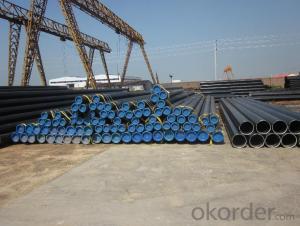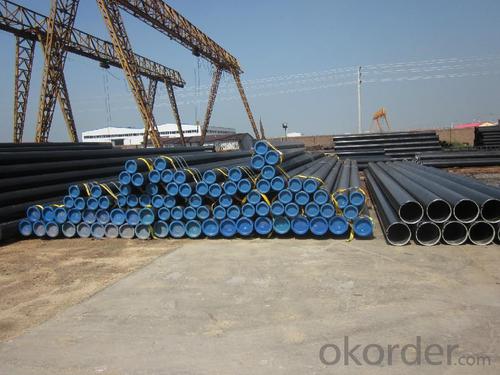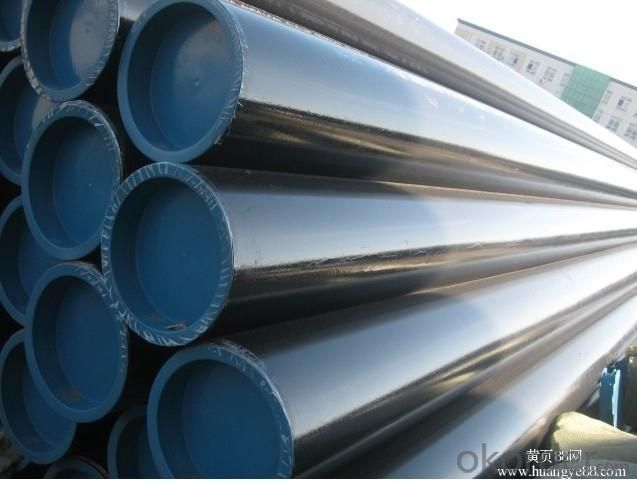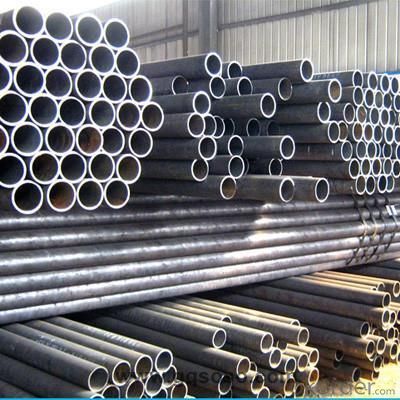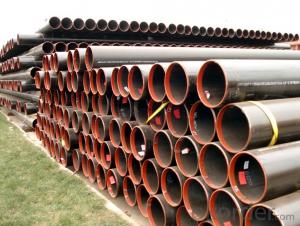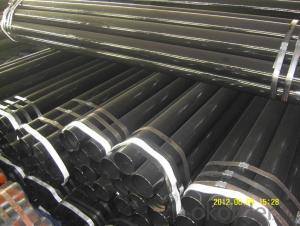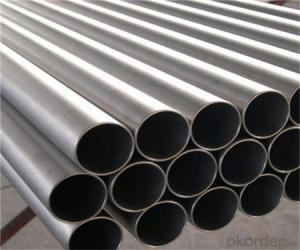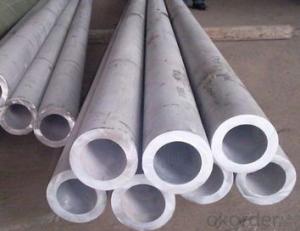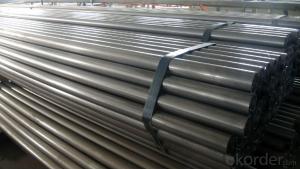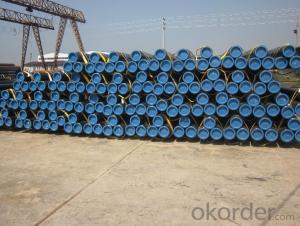API GRADE CARBON SEAMLESS STEEL PIPES WITH BEST PRICE
- Loading Port:
- Tianjin
- Payment Terms:
- TT OR LC
- Min Order Qty:
- 100 m.t.
- Supply Capability:
- 1000 m.t./month
OKorder Service Pledge
OKorder Financial Service
You Might Also Like
Product Description:
OKorder is offering high quality Seamless Steel Pipe at great prices with worldwide shipping. Our supplier is a world-class manufacturer of steel pipe, with our products utilized the world over. OKorder annually supplies products to European, North American and Asian markets. We provide quotations within 24 hours of receiving an inquiry and guarantee competitive prices.
Product Applications:
Seamless Steel Pipe is ideal for long distance oil, gas, and natural gas pipelines on land and offshore. They can also be applied in construction projects, offshore platforms, power stations, the petrochemical industry and municipal construction.
Product Advantages:
OKorder's Steel Pipe is durable, resists corrosion and is recyclable.
Main Product Features:
· Premium quality
· Prompt delivery & seaworthy packing (30 days after receiving deposit)
· Corrosion resistance
· Professional Service
· Competitive pricing
Product Specifications:
Standard: ASTM A106, ASTM A179, ASTM A192, ASTM SA213/A519, DIN1629/EN10216-1, DIN17175/EN10216-2, DIN 2391-1, API SPEC 5CT
Certification: MTC, ISO, API
Dimensions:
Nom. Thickness: 14mm – 325mm (Sch5s to XXS)
Wall Thickness: 1mm – 80mm
Length: 20'' – 24''
Packaging: Bundle, beveled or plain end, varnish, PVC end caps
FAQ:
Q1: Why buy Materials & Equipment from OKorder.com?
A1: All products offered byOKorder.com are carefully selected from China's most reliable manufacturing enterprises. Through its ISO certifications, OKorder.com adheres to the highest standards and a commitment to supply chain safety and customer satisfaction.
Q2: How do we guarantee the quality of our products?
A2: We have established an advanced quality management system which conducts strict quality tests at every step, from raw materials to the final product. At the same time, we provide extensive follow-up service assurances as required.
Q3: How soon can we receive the product after purchase?
A3: Within three days of placing an order, we will begin production. The specific shipping date is dependent upon international and government factors, but is typically 7 to 10 workdays.
Q4: What makes stainless steel stainless?
A4: Stainless steel must contain at least 10.5 % chromium. It is this element that reacts with the oxygen in the air to form a complex chrome-oxide surface layer that is invisible but strong enough to prevent further oxygen from "staining" (rusting) the surface. Higher levels of chromium and the addition of other alloying elements such as nickel and molybdenum enhance this surface layer and improve the corrosion resistance of the stainless material.
Q5: Can stainless steel rust?
A5: Stainless does not "rust" as you think of regular steel rusting with a red oxide on the surface that flakes off. If you see red rust it is probably due to some iron particles that have contaminated the surface of the stainless steel and it is these iron particles that are rusting. Look at the source of the rusting and see if you can remove it from the surface.
Q6: What is the difference between galvanized steel and galvalume steel?
A6: Galvanized steel is metallic coated with Zinc in various coating weights. Minimum recommended for painted metal roofs is G90. Galvalume is a zinc and aluminum coated steel that becomes an alloy and is recommended in either painted or bare applications with a minimum coating weight of AZ50. Galvalume has an excellent performance life in bare exposures. Hence if you are using a bare panel use galvalume and if painted use either.
Q7: Is there a difference in thermal conductivity between stainless steel and steel?
A6: Yes. Stainless Steel has a lower thermal conductivity rate than steel; approximately 1/3 to 1/5th depending on the material.
Q8: Is there a difference in electrical conductivity between stainless steel and steel?
A8: Yes. Steel is generally more conductive than stainless steel. Steel has resistivity in the range of 10~20Ωm, while stainless has a resistivity of approximately 60~72Ωm.
Images:
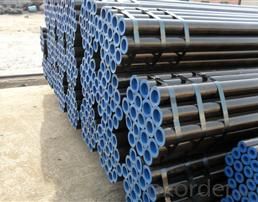
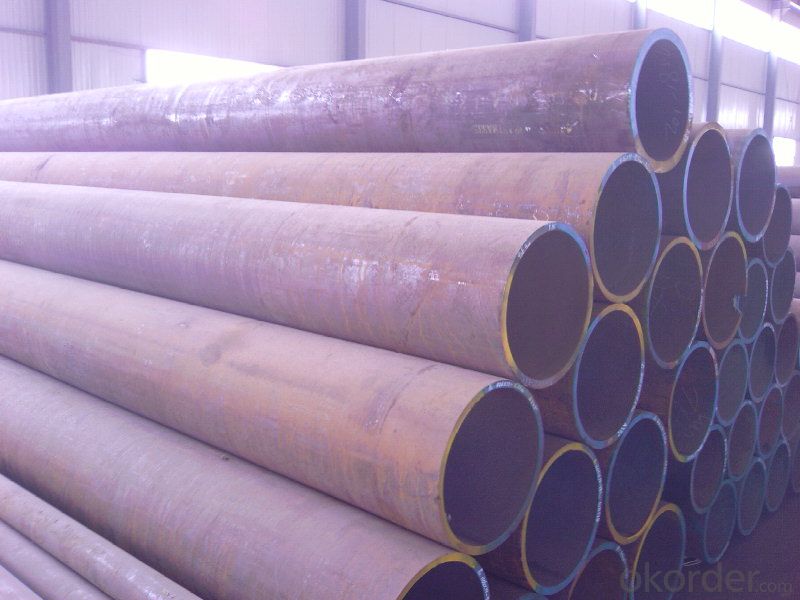
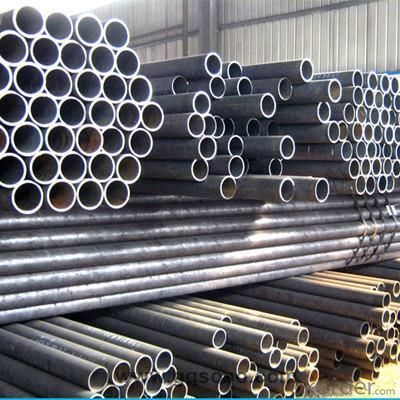
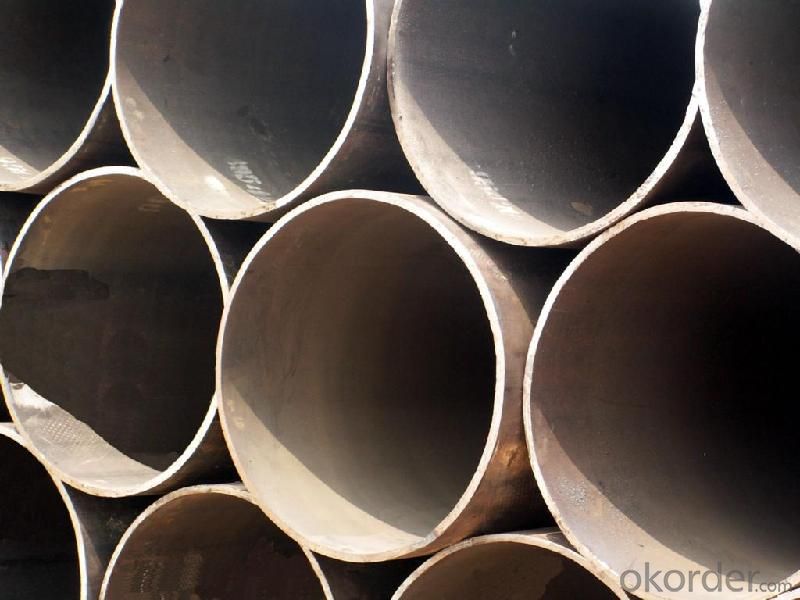
- Q: What is the process of spiral steel tube production?
- 1. open panel inspection: after the steel plate is opened, the product line is entered, and the ultrasonic examination of the whole plate is carried out first.2., flat milling: through the anvil machine to make the original coiled steel flat, and then through the milling machine on the edge of the steel plate two sides milling, so as to achieve the required plate width, plate edge parallelism and groove shape.
- Q: What is the maximum length of steel pipes available?
- The maximum length of steel pipes available can vary depending on the manufacturer and specific application. However, steel pipes can typically be found in lengths ranging from 20 feet (6 meters) to 40 feet (12 meters) or even longer in some cases.
- Q: How are steel pipes used in sewage treatment plants?
- Steel pipes are used in sewage treatment plants to transport and distribute wastewater throughout the facility. They are crucial in carrying raw sewage from the intake point to various treatment processes such as sedimentation tanks, filtration units, and aerobic/anaerobic digesters. Additionally, steel pipes may be utilized for pumping treated or partially treated wastewater to outfall locations or for reuse purposes. The durability and corrosion resistance of steel make it an ideal choice for handling the harsh and corrosive nature of sewage, ensuring long-lasting and efficient operation of the treatment plant.
- Q: What are the common materials used for pipe fittings in steel pipes?
- Pipe fittings in steel pipes can be made from various materials, including carbon steel, stainless steel, and alloy steel. Carbon steel fittings are popular due to their affordability, strength, and durability, making them suitable for applications in oil and gas, petrochemical, and water distribution systems. On the other hand, stainless steel fittings are highly resistant to corrosion and are commonly used in industries that prioritize hygiene, such as the food and beverage and pharmaceutical sectors. Alloy steel fittings, which consist of elements like chromium, nickel, and molybdenum, are designed to enhance strength and corrosion resistance, making them ideal for high-pressure and high-temperature environments like power plants and chemical facilities. Ultimately, the selection of pipe fitting material in steel pipes depends on the specific requirements of the application and the surrounding conditions.
- Q: How are steel pipes used in wastewater treatment plants?
- Steel pipes are extensively used in wastewater treatment plants for various purposes such as transporting wastewater, carrying chemicals, and supporting infrastructure. These pipes are durable, corrosion-resistant, and can withstand high pressure, making them ideal for conveying wastewater and other fluids within the plant. Additionally, steel pipes are often used in the construction of wastewater treatment plant structures and support systems due to their strength and longevity.
- Q: Can steel pipes be used for conveying natural gas?
- Yes, steel pipes can be used for conveying natural gas. In fact, steel pipes are commonly used for this purpose due to their strength, durability, and ability to withstand high pressures. Steel pipes also have excellent resistance to corrosion, which is crucial when transporting natural gas that contains impurities like water and sulfur compounds. Additionally, steel pipes can be easily welded, making them ideal for connecting different sections of the pipeline. Overall, steel pipes are a reliable and safe choice for conveying natural gas.
- Q: How are steel pipes protected against abrasive wear?
- Steel pipes are protected against abrasive wear through various methods such as lining the interior of the pipes with abrasion-resistant materials, applying protective coatings on the pipe surface, or using ceramic tiles or liners. These measures help minimize the effects of friction and abrasion, ensuring the longevity and durability of the steel pipes.
- Q: What is the role of steel pipes in the chemical manufacturing industry?
- Steel pipes are an essential component in the chemical manufacturing industry as they are used for various purposes such as transporting chemicals, gases, and liquids safely and efficiently. They provide a durable and corrosion-resistant infrastructure, ensuring the integrity of the chemical processes. Steel pipes also play a crucial role in maintaining the overall safety and reliability of the manufacturing operations.
- Q: Can steel pipes be used for fencing?
- Yes, steel pipes can be used for fencing. They are a popular choice for fencing due to their strength, durability, and ability to withstand harsh weather conditions. Steel pipes provide a sturdy and secure barrier, making them suitable for various fencing applications such as residential, commercial, and industrial settings.
- Q: Are steel pipes resistant to chemicals?
- Yes, steel pipes are generally resistant to chemicals. They have excellent corrosion resistance properties, making them suitable for transporting various chemicals in industries such as oil and gas, chemical processing, and wastewater treatment. However, the level of resistance can vary depending on the specific type of chemical and the grade of steel used. In some cases, additional protective coatings may be required to enhance chemical resistance.
Send your message to us
API GRADE CARBON SEAMLESS STEEL PIPES WITH BEST PRICE
- Loading Port:
- Tianjin
- Payment Terms:
- TT OR LC
- Min Order Qty:
- 100 m.t.
- Supply Capability:
- 1000 m.t./month
OKorder Service Pledge
OKorder Financial Service
Similar products
Hot products
Hot Searches
Related keywords
